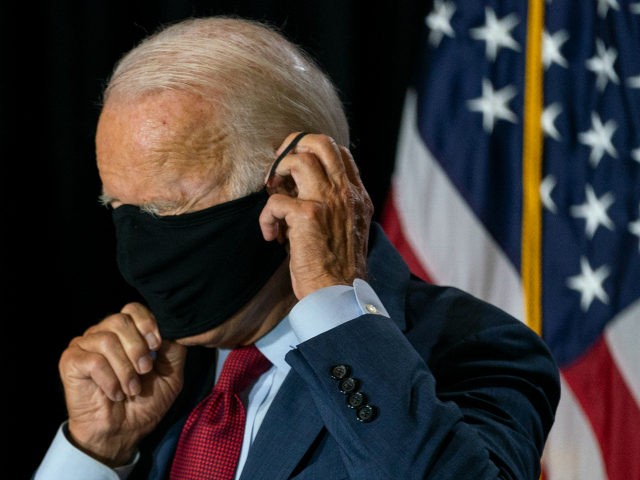Presidents like to say that their predecessors left them a mess. Yet in Middle East policy, President Donald Trump left his successor an extraordinary gift of peace and stability.
Peace agreements were emerging almost weekly between Israel and her Arab neighbors. Iran, struggling under the burden of U.S. sanctions, was isolated, broke, and wracked by internal turmoil. In Afghanistan, a tentative deal with the Taliban meant that U.S. troops could look forward to coming home.
Trump left the U.S. in a position of historic strategic advantage. But like President Barack Obama, who squandered the gains of the Iraq “surge” and withdrew before the country was stable enough to prevent the rise of the terrorist “Islamic State,” Biden is throwing away many of the gains Trump achieved in the region.
If he simply stays on the course Trump charted, Biden can maximize his leverage on Iran and entice Saudi Arabia to make peace with Israel.
Those prospects are dimming.
On Friday, for example, the White House confirmed that President Biden had named Robert Malley his envoy on Iran. Malley is a radical with a long record of foreign policy failure.
In 2008, the Obama campaign booted Malley after it emerged he met with Palestinian terror group Hamas. In 2015, he was brought into the Obama administration to work on the hopelessly weak Iran nuclear deal. Malley was then named as ISIS “czar,” leading Obama’s hapless effort.
Malley appeared to learned nothing from his mistakes. In 2018, when President Trump supported protests against the Iranian regime, Malley joined the critics who said Trump should “be quiet.”
Though Biden had campaigned on returning to the Iran deal, there was still hope that he might have pushed for a tougher agreement — one that did not give Iran a clear path to a nuclear weapon. Malley’s appointment is a clear sign that Biden intends to appease the regime, as Obama did.
That increases the likelihood that Israel will have to take preemptive military action to stop Iran’s nuclear program.
There is no way that Israel, or her Arab allies, can accept a nuclear-armed Iran. And after the experience of the Obama years — in which the administration accepted a deal that allowed Iran eventually to emerge as a nuclear power, and even reneged on public commitments to stop Iran’s ballistic missile program, there is no reason for Israel to trust Biden with its security.
In addition, this week the administration suspended arms sales to Saudi Arabia and the United Arab Emirates (UAE), two key Arab allies.
While there are serious questions about Saudi Arabia’s involvement in Yemen’s civil war, it is important to note that the Saudis are opposing the Iranian-backed Houthis, who started it. Cutting off weapons sales to Saudi Arabia allows Iran to support the Houthis, and to gain influence across the Bab el-Mabndeb strait from U.S. forces in Djibouti. (The Houthi motto: “God is great, death to America, death to Israel, curse on the Jews, victory to Islam.”)
Moreover, arms sales to the UAE were a part of the negotiations that led to the Abraham Accords, the peace agreement between the UAE and Israel.
By backing away from the UAE deal, Biden risks unraveling the diplomacy that led the UAE and several other Arab states to embrace Israel. The big winner is Iran, which wants to weaken the Arab states and discourage Israel-Arab partnerships.
In addition, the administration said it will renew ties with the Palestinian Authority and restore aid to the U.N. Relief and Works Agency (UNWRA), which focuses solely on Palestinian “refugees.” When asked what the U.S. received in return, the White House could not say. The real answer is: nothing.
While Secretary of State Tony Blinken has said the U.S. would keep its embassy in Jerusalem, Biden is rewarding Palestinians in every other way for refusing to negotiate peace.
Meanwhile, the Taliban are reneging on their agreement with the U.S., allowing Al Qaeda a foothold. Both Obama and Trump sought diplomacy as a way out of Afghanistan. Trump, at least, punished the Taliban for killing Americans, and they stopped.
It is doubtful that Biden will do the same; he has not even done anything to punish Russia for poisoning opposition leader Alexei Navalny, despite four years of Democratic fulminating about Trump and Russian “collusion.”
Blinken is thus far the only member of the Biden administration to acknowledge that Trump succeeded — in confronting China, forging ties between Serbia and Kosovo, and orchestrating the Abraham Accords. Blinken was also forced to acknowledge, during his Senate confirmation hearing, that he had been wrong about the Iraq War, the Libya War, and the Syrian Civil War.
Those who hope for continued progress in the Middle East are pinning their hopes on the idea that Blinken is the best of a bad lot who appear to have “failed upwards” into their jobs.
But the rest of the administration will not accept that the Obama-Biden approach to the Middle East failed, or that Trump’s “America first” approach succeeded.
As a result, instead of peace, Biden may be putting the region back on a path to war.
Joel B. Pollak is Senior Editor-at-Large at Breitbart News and the host of Breitbart News Sunday on Sirius XM Patriot on Sunday evenings from 7 p.m. to 10 p.m. ET (4 p.m. to 7 p.m. PT). His newest e-book is How Not to Be a Sh!thole Country: Lessons from South Africa. His recent book, RED NOVEMBER, tells the story of the 2020 Democratic presidential primary from a conservative perspective. He is a winner of the 2018 Robert Novak Journalism Alumni Fellowship. Follow him on Twitter at @joelpollak.

COMMENTS
Please let us know if you're having issues with commenting.